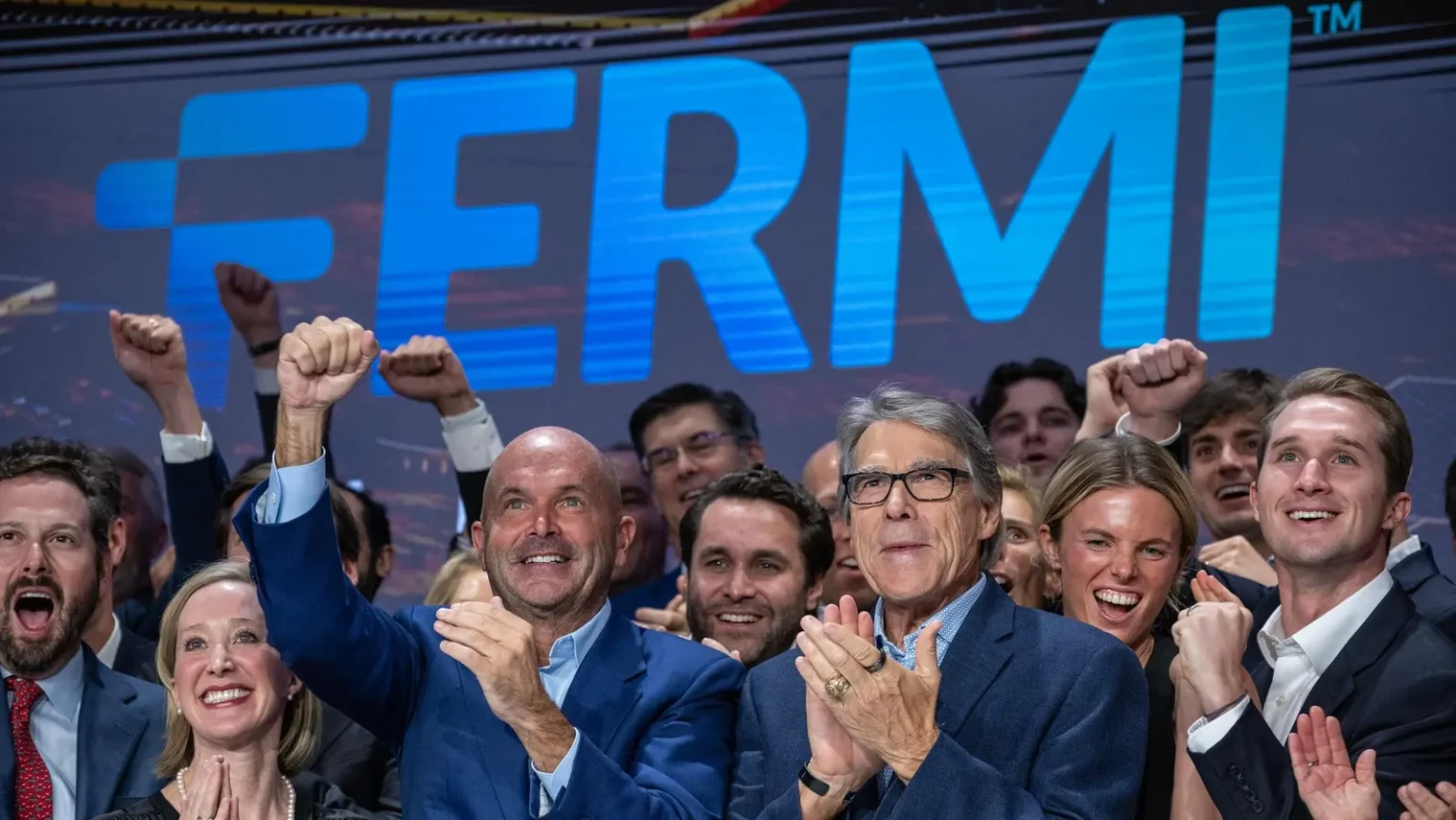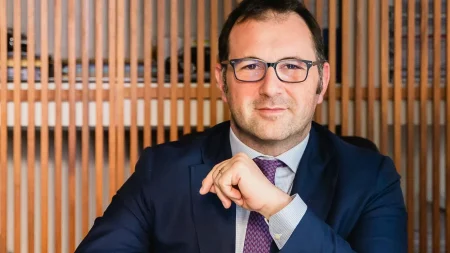AI and Data Centers Creating New Billionaires Through Real Estate Ventures
The artificial intelligence and data center boom has created numerous billionaires, but a new trend is emerging: the real estate beneath these technological powerhouses is now generating ten-figure fortunes as well. This phenomenon was highlighted on Wednesday when Fermi America, a Texas-based real estate investment trust co-founded by former energy secretary Rick Perry, made its remarkable debut on the Nasdaq. Despite having no sales to date, the company’s stock opened at $21 and closed 55% higher at $32.53, valuing the nine-month-old firm at an astonishing $19 billion. This extraordinary market response transformed several of its founders into instant billionaires, demonstrating investors’ tremendous faith in the future of AI infrastructure.
The biggest winner from Fermi’s public offering is Toby Neugebauer, the company’s president and CEO, who along with his family now owns an estimated 28% stake worth $6 billion. As the son of former Texas congressman Randy Neugebauer, Toby brings significant connections to his role, having previously co-founded Houston-based energy private equity firm Quantum Energy Partners and led various investment firms. Meanwhile, Griffin Perry, son of Rick Perry, became a billionaire overnight with his 11% stake valued at $2.3 billion, despite having no formal role at Fermi. The third billionaire created by the IPO is Steven Meisel, worth $1.8 billion through his firm Pencross Energy’s investment in Fermi. Rick Perry himself, while not quite reaching billionaire status, saw his net worth skyrocket from an estimated $3 million in 2019 to approximately $540 million after the IPO—a staggering transformation for the career politician who previously served as Texas governor and U.S. Energy Secretary.
What makes Fermi’s astronomical valuation particularly remarkable is that the company has yet to generate any revenue—in fact, it reported a $6.4 million loss during its first six months. The company’s business model revolves around a 5,236-acre site in Amarillo, Texas, dubbed “Project Matador,” where Fermi plans to eventually deliver up to 11 gigawatts of energy from natural gas, nuclear, and solar plants to power AI data centers. While the company claims it signed a letter of intent in September with an unnamed “investment grade tenant” for its first gigawatt of power, it hasn’t secured any definitive customers. Instead, its prospectus mentions companies like Elon Musk’s xAI, OpenAI, and Anthropic as “potential hyperscaler tenants” and offers “illustrative returns” rather than concrete revenue projections, suggesting it could generate $1.5 billion from leasing 1 gigawatt of capacity.
Fermi’s ambitious plan to rapidly deliver massive power capacity appears to be its main selling point to investors. The company believes its ability to bring 1.1 gigawatts online by the end of 2026 represents “a critical differentiator” in attracting AI data center customers who require immediate access to large-scale, reliable energy. Though Fermi ultimately aims to power much of its facility with nuclear energy and some solar, it will initially rely on natural gas—similar to other enormous data centers like Musk’s xAI “Colossus” in Memphis. The company has signed a letter of intent with Siemens Energy to purchase three gas turbines for generating the initial 1.1 gigawatts, while also collaborating on nuclear steam turbines to be integrated into the four Westinghouse nuclear reactors planned for the site. Rick Perry, a strong proponent of nuclear energy, has positioned Fermi’s efforts as critical to America’s competitive standing: “The Chinese are building 22 nuclear reactors today. America has none. We’re behind—and it’s all hands on deck.”
The political connections of Fermi’s leadership team are undeniably intertwined with its business strategy. The company has explicitly aligned itself with former President Donald Trump, even naming its Amarillo site the “President Donald J. Trump Advanced Energy and Intelligence Campus.” Perry has framed Fermi’s data center as an example of Trump’s “energy dominance” agenda, stating, “No one understands the global energy race better than Donald Trump.” This political positioning represents a calculated business strategy, as the company likely anticipates favorable regulatory treatment under a potential second Trump administration. Beyond Perry’s political influence, Griffin Perry brings his experience from energy investment firm Grey Rock Investment Partners, which manages over $1 billion, while Steven Meisel contributes his background in energy infrastructure, having previously led an oil and gas pipeline project that sold for $1.2 billion.
Fermi’s extraordinary market reception reflects investors’ tremendous optimism about the intersection of AI, energy, and real estate, even with significant uncertainties about the company’s actual prospects. The firm will face stiff competition from established data center operators like Coreweave, which already counts Microsoft, Meta, and OpenAI among its customers and has seen its stock triple since going public in March. Additionally, Fermi’s heavy reliance on future nuclear power development comes with regulatory complexities and historically lengthy implementation timelines. For Neugebauer specifically, this venture represents a stark turnaround after his previous startup, “anti-woke” fintech company GloriFi, filed for bankruptcy in 2023 despite $55 million in funding from prominent Republican investors. Whether Fermi can transform its ambitious plans into operational success remains to be seen, but its spectacular market debut has already created tremendous wealth for its founders, demonstrating that in the AI gold rush, those providing the infrastructure—and especially the land and energy beneath it—stand to make fortunes alongside the technology innovators themselves.









